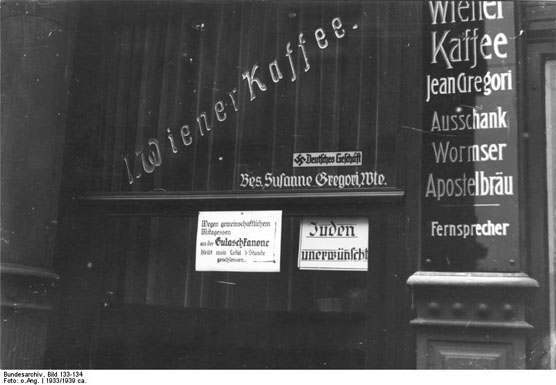How do Jewish children’s lives change?
Thursday November 10 1938 should have been an ordinary school and work day. However, for Jewish children, nothing was the same again. Consequently, fear and terror marked the weeks after the November Pogrom for Jewish children.
How did children feel during the days of the November Pogrom? How did it affect them?
Harry Bibring recalls how these days made him a “totally different child”.
© National Holocaust Centre and Museum
Expelled from society
A scathing antisemitic propaganda campaign flooded over Germany falsely proclaiming Jewish criminal nature and their undeserved wealth. Children could feel that people at large consented with the persecution of Jews.
Only partial criticism was raised concerning the extreme violence. Acts of kindness were rare. Children felt outsiders and were apprehensive of what the future might bring.
The clearest sign for Jewish children that they were no longer wanted in Germany was their expulsion from school across the Reich till November 15 1938.
How does life in school change for a 10-year-old Jewish girl after the Pogrom? Where would Jewish children learn now? And why were class sizes shrinking continuously?
© National Holocaust Centre and Museum
The challenge of daily life
Shop signs saying “Jews not wanted” developed an even more aggressive meaning after the Pogrom. Understandably, children had a real sense of danger now. Only anonymity seemed to offer some protection. Subsequently, Jewish children were careful not to attract any attention.

“Jews not wanted” and “German business” mark the shop front of this coffee shop in Worms. What does it mean to be Jewish and German? These signs are an attack on the core of Jewish-German identity.
Credit: Bundesarchiv, Bild 133-134 / CC-BY-SA 3.0
How does a Jewish German child navigate a city full of signs “Jews not wanted”? How might it feel to know the threat is real? Ruth David recollects her clandestine shop errands for her mother.
© National Holocaust Centre and Museum
Forced to take on adult concerns
Children turned prematurely into adults. The arrest of many fathers and the violence and destruction around them left their mark. Immediate emigration became a priority. The impossibility to go as a family meant for some children that they were sent away –alone.